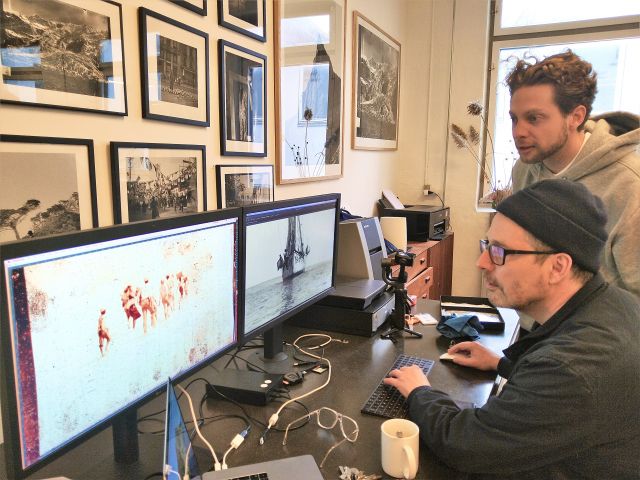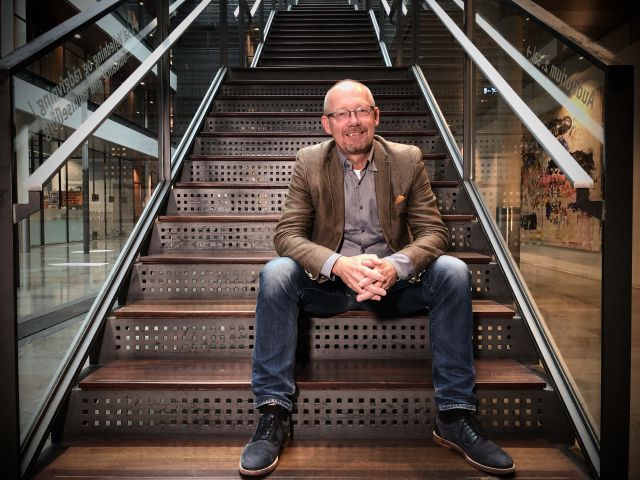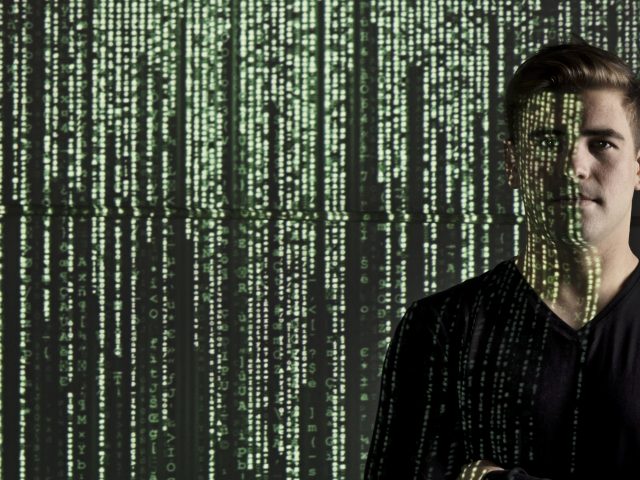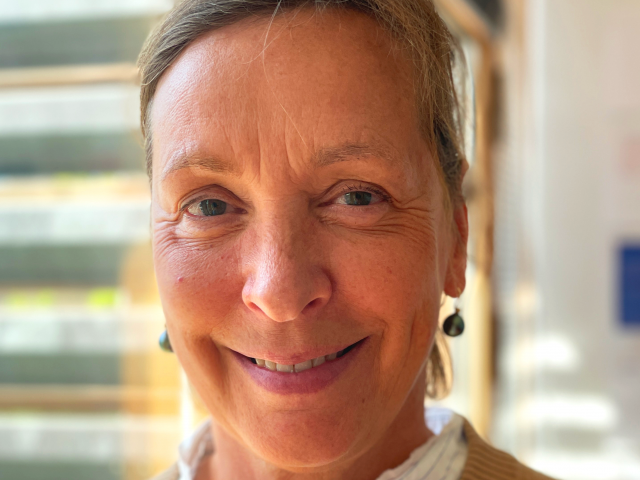Crypto currencies are so much more than online money

Jan Damsgaard does research in cryptocurrency and has recently published a book on the real value of crypto-money. (Photo: Anna Holte)
Many people believe that crypto currencies are simply hot air and therefore worthless. But CBS professor Jan Damsgaard believes that the value of a crypto currency lies in the blockchain technology behind it and the possibilities it holds.
If you know little or nothing about crypto currencies, it is easy to believe that they hold no real value. After all, what are crypto currencies if not simply online currencies that are not regulated by a central bank?
Recently, Bill Gates even stated on CNN that he believes crypto currencies are worthless.
But according to CBS professor Jan Damsgaard from the Department of Digitalization, a crypto currency’s real worth lies in the blockchain technology on which it is based.
In November 2021, he published the book Blockchain Business on the topic in an attempt to demonstrate how you might value crypto currencies not by the online currency itself but by the blockchain technology behind them.
Because this is what is essentially groundbreaking about crypto currencies.
“Blockchains enable consumers to authenticate and trace the provenance of any object in an easy and efficient way,” says Jan Damsgaard.
So blockchains can be used for contracts, diplomas, tracking the origin of objects as diverse as shoes and shipping containers while also revealing more to customers about each product’s carbon footprint.
Everyone can verify information
With blockchain technology, the information is stored in blocks that are linked together in a so-called ‘chain’. Hence the name.
Each block contains information about the previous block in the chain, creating a chain of blocks that cannot be changed.
Some will be involved directly in developing blockchains, while others will work with them indirectly, for example, students seeking a career in finance
Jan Damsgaard, CBS professor
All the blocks in the chain are constantly maintained by accountants – not human accountants but computers that constantly monitor any new blocks added to the chain.
This enables all accountants to verify information about a specific block in the chain and this is what makes the technology so unique.
Such decentralization of information is useful in practically all business fields. And Jan Damsgaard expects it will be in widespread use in just five to ten years’ time.
“I have just read a report from the European Commission that says the clothes industry needs to be able to account for the origin of its products by 2030. This can be done using blockchain technology,” Jan Damsgaard says.
One fashion company that is already to some extent using blockchains to show customers its products’ origins is the Danish shoe manufacturer Roccamore.
Underneath some of its shoes, a QR code, when scanner, reveals a shoe’s entire journey. From the cow grazing in Jutland, to the tanning in Germany, the shoe factory in Italy and back to the shelves in its shops in Denmark and Norway.
Another field where Jan Damsgaard predicts that blockchains will be vital is for showing products’ carbon footprints.
At each stage of production, carbon data can be entered in blockchains, and simply by scanning a QR code, customers can discover the carbon footprint of a certain item.
CBS students will definitely work with blockchain technology
Given how widely used Jan Damsgaard believes blockchains will be, he feels certain that many CBS students will work with blockchains in the future.
“Some will be involved directly in developing blockchains, while others will work with them indirectly, for example, students seeking a career in finance,” Jan Damsgaard says.
Naturally, some CBS students are already studying blockchains and learning about them in the student chapter dedicated to the subject.
But even if you do not learn about blockchains at university and will not be working with them, you are likely to encounter them in one way or another.
Perhaps your CBS diploma will be stored in a closed blockchain system maintained by universities around the world.
The universities would guarantee the authenticity of the certificates, meaning that falsification will be impossible. When you apply for a job, your potential employer would merely have to scan a QR code to access your diploma.
A system like this is already being developed by the German university Fraunhofer University.
Do we even need crypto currencies?
After hearing all the praise for blockchains, you might be wondering why crypto currencies even exist – in addition to being an investment opportunity, of course.
But according to Jan Damsgaard, all open-source blockchains require crypto currencies or they cannot function.
“Crypto currencies are the lubricant that makes the blockchains function; it is the way to pay the accountants for making sure that the information is always correct,” Jan Damsgaard says.
As for the real value of a crypto currency, Jan Damsgaard says it should always be based on the functionalities of the blockchain in question.
“There are more than 8000+ crypto currencies and not all of them hold the potential to be used in different fields. Some are purely for investment and many are solely for speculation, but some have values that closely match other services with the same functionalities,” Jan Damsgaard explains.
One example is the blockchain Solana with the crypto currency SOL. The blockchain functionality of Solana somewhat resembles that of Spotify, which enables music streaming.
Some even believe that Solana will be able to challenge Spotify and other streaming services. Solana’s net worth of USD 13 billion (June 2022) compared to Spotify’s USD 19 billion net worth (June 2022) seems more accurate when viewed in this light and not merely as the value of the associated crypto currency.








































































































































Comments